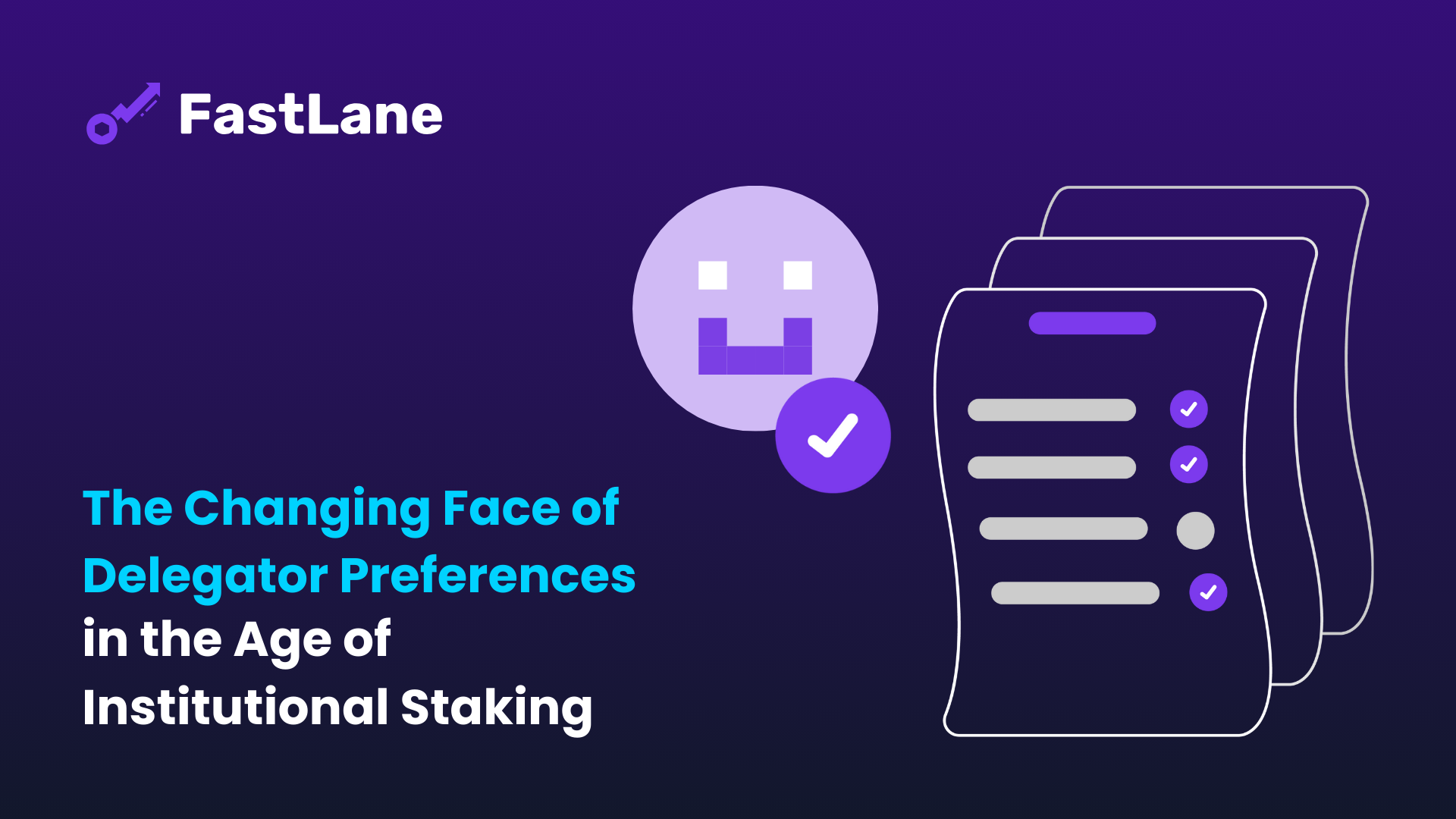The Changing Face of Delegator Preferences in the Age of Institutional Staking
2023-09-16

VALIDATORS
FINANCE
In the ever-evolving landscape of the Polygon network, the dynamics of staking have undergone significant shifts.
As the decentralized finance (DeFi) ecosystem matures, the preferences of delegators are not what they used to be.
The age of institutional staking has dawned, and with it comes a new set of expectations and considerations for Polygon Validators.
Historically, individual delegators prioritized short-term gains, often hopping between validators to chase higher rewards.
The game was simple: find the validator offering the best returns and delegate.
However, as institutional players enter the staking arena, the rules of the game are being rewritten.
Institutional Staking: A Different Beast
Institutional staking is not just about returns; it's about security, reliability, and long-term growth.
Institutional investment funds, with vast amounts of capital at their disposal, are not looking for quick wins.
They seek stability and predictability.
For them, the risk associated with validator downtime, slashing events, or poor network participation can be a deal-breaker.
This shift in delegator profile means validators need to up their game.
It's no longer sufficient to offer competitive staking rewards.
Validators must demonstrate a track record of reliability, invest in top-tier infrastructure, and actively participate in network governance.
Technical Excellence is Paramount
For the technically skilled coder running a validator, this evolution presents both challenges and opportunities.
The modern validator must be adept not just in maintaining node uptime but in navigating the complex interplay of network politics, protocol upgrades, and the ever-present threat of adversarial attacks.
Validators are now expected to be at the forefront of protocol development, actively contributing to the improvement of the Polygon network.
This proactive approach is not just about staying relevant; it's about shaping the future of the network in which they have a vested interest.
Understanding the New Delegator
In the age of institutional staking, understanding the needs and expectations of the new-age delegator is crucial. These are not individuals looking to make a quick buck. They are professional entities, with stringent due diligence processes and a long-term vision.
- Security First: Institutional delegators prioritize the security of their funds above all else. Validators must invest in state-of-the-art infrastructure, multi-sig wallets, and robust key management solutions.
- Transparency is Key: Regular communication about validator performance, upcoming protocol changes, and network governance decisions is essential. Institutional delegators appreciate validators who maintain open channels of communication and provide regular updates.
- Active Network Participation: It's not just about validating transactions. Validators are expected to be active participants in network governance, contributing to protocol upgrades and shaping the future direction of the Polygon network.
- Sustainability Matters: With the growing emphasis on ESG (Environmental, Social, and Governance) criteria in the investment world, validators who adopt sustainable practices and prioritize energy-efficient infrastructure will have an edge.
Adapting to the New Normal
For validators, the message is clear: adapt or risk obsolescence. The age of institutional staking demands a higher standard of operation, a proactive approach to network participation, and an unwavering commitment to security and transparency.
Validators who recognize these shifts and position themselves accordingly will not only attract institutional delegators but will play a pivotal role in the next phase of Polygon's growth. It's an exciting time to be a part of the Polygon network, and for those validators willing to rise to the challenge, the rewards—both financial and in terms of influence within the network—are significant.
Are you a Polygon Validator ready to make the most of these trends?
Let’s Talk.
We are currently helping 26 Polygon Validators - who produce 30.75% of all blocks - to earn more MATIC through MEV.
By just patching your sentries, (with a free, one-line code) you can boost your earnings while keeping the network clean and safe from harmful activities.
On average it takes less than 10 minutes to onboard before you can start making a positive influence for the Polygon user experience and collect MATIC that would otherwise just be collected by Searchers.
For more details - message me at [email protected]